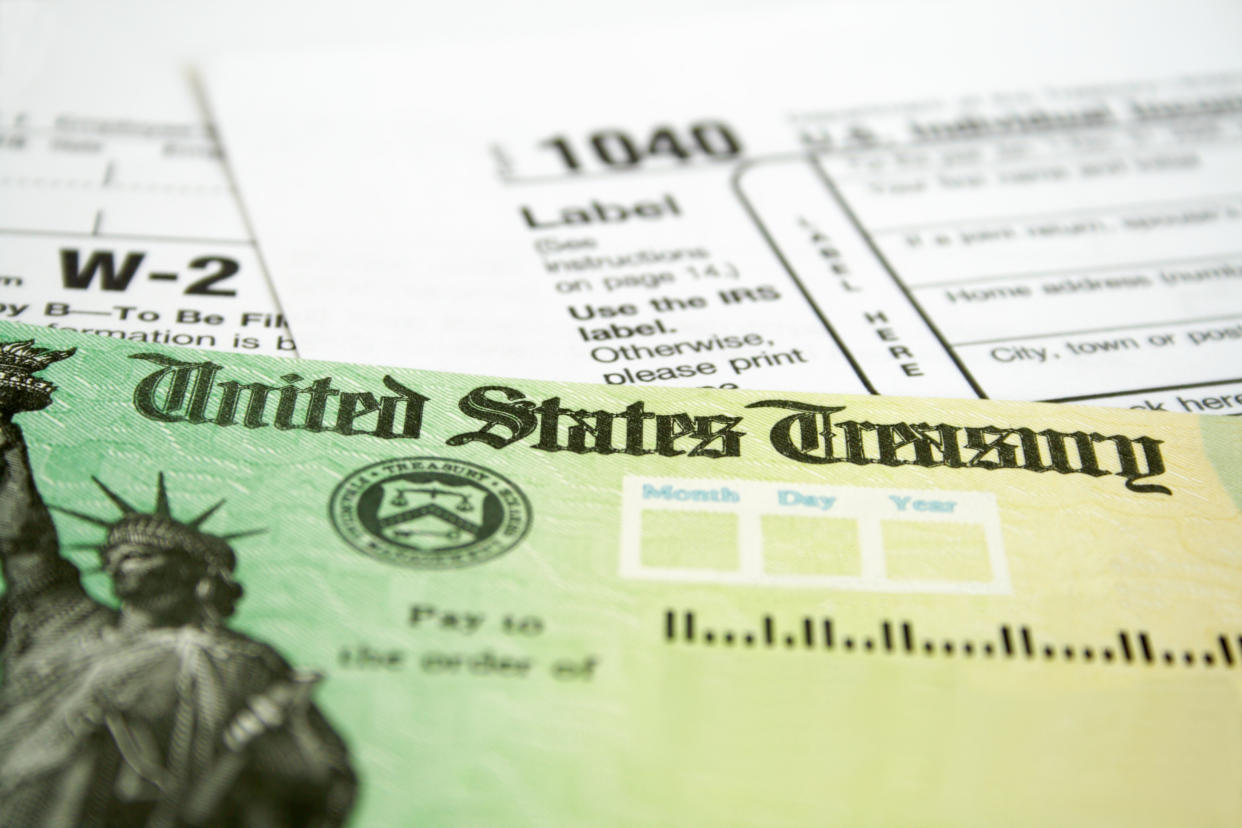Tax refund calendar: Here’s when you’ll get your refund
Taxpayers can largely expect their tax refunds to arrive two weeks after they file their federal returns — as long as they file the right way and without errors.
That’s according to CPA Practice Advisor, a publication for tax pros, which each year publishes a refund timeline based on averages for IRS refunds over the last 20 years. The outlet said refunds could take longer during peak filing times in April, while refunds that include the Earned Income Tax Credit or the Additional Child Tax Credit can't be issued until mid-February by law.
The IRS typically tells taxpayers to wait 21 days after they file for their refund, which is often their biggest windfall of the year.
“The best way to get your refund as fast as possible is to file as soon as you have all the documents you need and file electronically,” Isaac M. O'Bannon, managing editor at CPA Practice Advisor, told Yahoo Finance. “Technology has greatly sped up tax refunds for taxpayers and the IRS, especially when people e-file.”
Here’s how to make sure you get your tax refund as quickly as possible.
E-file and use direct deposit to avoid delays
If you’re relying on your refund, file early and electronically, and use direct deposit for refunds to prevent delays. Paper returns often take longer to process, even though the IRS has implemented some recent changes to speed up the process.
You can get your refund deposited to a bank account, prepaid debit card, or mobile app so long as you have a routing and account number.
Avoid inaccurate returns
Whether you’re filing online or with a tax professional, have all of your personal information and tax documents before filling out your return. Returns with errors or missing information may require additional review, delaying your refund.
Make sure to have the personal information for your spouse and dependents, such as birth dates and Social Security numbers or taxpayer identification numbers. You’ll also need this year’s Identity Protection Personal Identification Number if the IRS issued one for you.
You’ll need records of your income including W-2 income statements and 1099s for unemployment compensation, dividends, pension, annuity or retirement plan distributions.
“Did you buy an electric vehicle (EV), have solar panels installed, start a side-hustle, or cash out of your bitcoin position?” Adam Brewer, a tax lawyer and founder of AB Tax Law APC, told Yahoo Finance. “All these will impact your tax return and refund.”
Have receipts and documentation for these items. Other needed items could include Form 1095 if you got coverage through the health insurance marketplace as well as any tuition, mortgage interest, and real estate tax receipts. You’ll also need documentation of your charitable donations if you plan to itemize using Schedule A.
Having last year’s return is also a good guide to help you wade through this year’s. Check out H&R Block’s tax checklist to help you prepare.
If you cannot afford a tax professional but need help filing your taxes, visit the IRS free file options or Volunteer Income Tax Assistance (VITA). VITA offers free tax preparation for moderate- to low-income individuals, disabled individuals, senior citizens, or those who have a language barrier.
Ronda is a personal finance senior reporter for Yahoo Finance and attorney with experience in law, insurance, education, and government. Follow her on Twitter @writesronda
Read the latest personal finance trends and news from Yahoo Finance.
Follow Yahoo Finance on Twitter, Instagram, YouTube, Facebook, Flipboard, and LinkedIn
Source: Read Full Article
